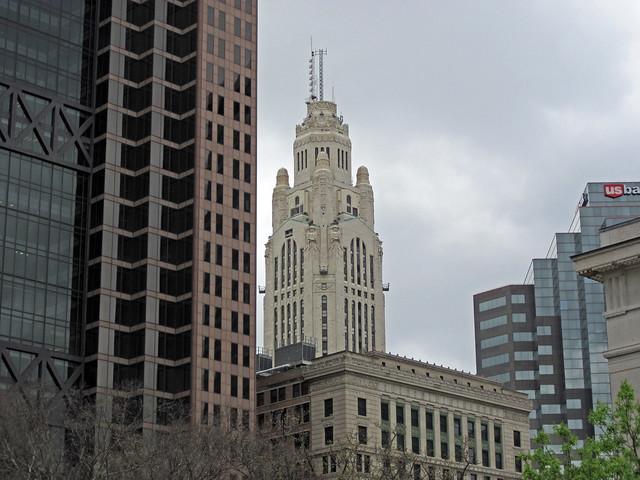- Density is important for effective transit, but only 12 of the 50 largest U.S. cities are as dense as the average city in the 1950s, due to federal policies favoring highways. And those cities only achieved that density by directing it to certain areas while allowing sprawl elsewhere. (Governing)
- There are all kinds of options for redeveloping vacant malls and their vast parking lots, from apartments and condos to offices to breweries and theme parks. (Route Fifty)
- Inflation and supply-chain problems are hitting electric bus manufacturers. (Smart Cities Dive)
- Although the expected post-pandemic eviction wave never happened, one major Midwestern rental housing company is using the threat of evictions to jack up rents. (City Lab)
- Blowback from San Diego's proposed road usage fee, which would help pay for a $160 billion regional transit expansion plan, has turned politics in the heavily Democratic city upside down. Turns out that, even if people want to stop climate change, they don't want to pay for it. (Time)
- San Diego State scientists are researching ways to recycle used electric-vehicle batteries, a potentially major environment threat as EVs proliferate. (KPBS)
- A $2.3 billion Red Line extension could jump-start development on Chicago's South Side. (The Real Deal)
- Colorado Springs may get a new mixed-use multimodal transportation center downtown. (Colorado Public Radio)
- Can transit agency MARTA sell bus rapid transit as a cheaper alternative to light rail in historically underserved Southwest Atlanta? (AJC)
- The Bay Area has 15 million parking spaces, two for every resident, showing the disconnect between the region's progressive reputation and its land-use policies. (Examiner)
- The Bicycle Coalition of Greater Philadelphia has suggestions for improving a compromise on the controversial redesign of Washington Avenue.
- Austin approved $41 million to build affordable housing and prevent displacement as it gears up for the $7 billion Project Connect transit expansion. (KXAN)
- Phoenix is working to prevent gentrification along the South Central line rail extension. (KJZZ)
- It's not just light rail: Minnesota lawmakers have audit fever. (MPR)
- Giddyup! Houston created a pop-up bike lane to help people get to last weekend's rodeo and livestock show. (Chronicle)
Stay in touch
Sign up for our free newsletter
More from Streetsblog USA
Thursday’s Headlines Walk Hard
Where you live probably has a lot to do with how much you walk.
When The Suburbs Want To Opt Out of Funding Regional Transit
A messy transit funding fight in Dallas may have reached a pause — but some advocates fear the détente won't hold.
Proposed E-Bike Legislation That Includes Mandatory License Plates Panned by California Safety Advocates
"I think everyone agrees there's a safety issue with motorized bikes and modified e-bikes being treated as bicycles, but based on early reviews this legislation won't solve those problems."
Wednesday’s Headlines Have Consequences
The Trump administration's actions on climate change have consequences for future generations. Industries might not like what they get in return.
Trump’s Canada Bridge Tantrum Could Be Bad News For An International Bike Trail
A multi-use trail along the Gordie Howe Bridge would be a key component of an epic cross-continental trail route — if Trump doesn't prevent the entire structure from opening.
Disturbing Utah ‘Bikelash’ Bill Takes Aim at Salt Lake City Traffic Calming
Utah state legislators aren't traffic engineers — so why are they writing laws that would force the review of specific bike lanes already on the roads in their capitol, and preemptively stop Salt Lake from building more?






